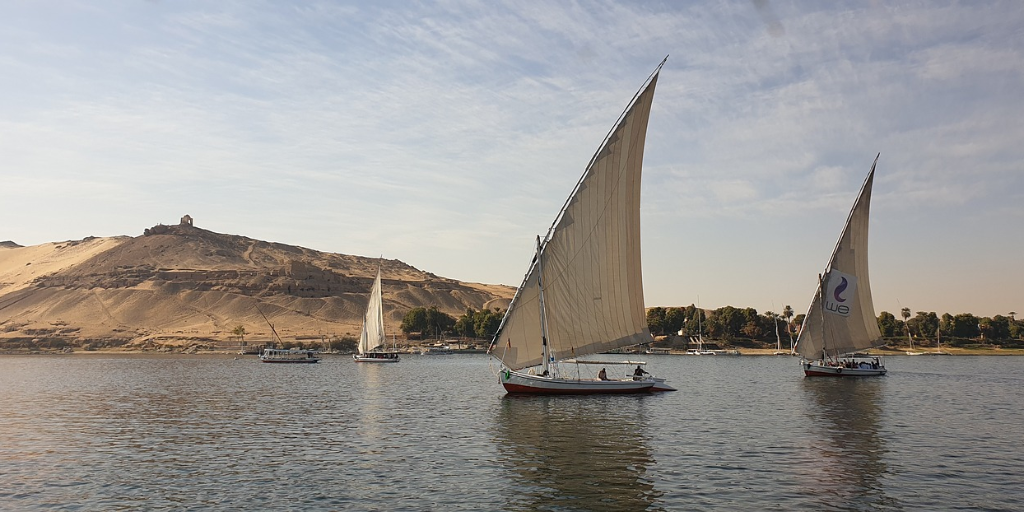The first thing that comes to mind when someone mentions Egypt is normally the Pyramids of Giza. The second might have to do with archaeology and the country’s rich and vast ancient civilization, or, at times, its tourism industry.
Boats, however, will be further down the list if they come to mind at all.
While they may seem less glamorous than the local monuments and cultural sites, Egypt actually has a long and rich history of seafaring. When better to recognize that than on a day globally dedicated to its practitioners?
International Day of the Seafarer is commemorated annually on 25 June. It was established in Manila in 2010 at a diplomatic conference to amend a treaty on seafarers’ training and certification.
Every year, the International Maritime Organization (IMO) proposes a different theme for a related social media campaign. The theme for 2023 is #OceansWorthProtecting, and the campaign can be found running on the organization’s Facebook, Instagram, Twitter, and LinkedIn.
The day serves to “recognize the unique contribution made by seafarers from all over the world to international seaborne trade, the world economy and civil society as a whole,” according to the IMO.
As such, it is worth taking a look back at where this cornerstone of modern trade and global economy originated.
The Ancient Roots of Seafarers
The first sailors of the ancient world were the Egyptians, the Greeks, and the Phoenicians. However, the earliest records of ship building belong to the ancient Egyptians exclusively; the oldest depictions of boats in history were discovered on vases from around 3500 BC.
Additionally, ancient Egyptians facilitated the first ever documented sea voyage. Near the end of the seventh century BC, the Phoenicians were recruited by the Pharaoh Necho to sail the waters around Africa. The journey was later commented upon by Herodotus, nearly 200 years after the fact.
The significance of boats even extends beyond the endeavors of ancient Egyptians and into their mythologies. For example, the solar barque of Ra is said to have carried the king of the Egyptian gods across the cosmos each day. The barque of Osiris was another notable boat, as it was the god of the deceased’s chosen vessel in the underworld.
With such deep roots in both the actual and mythological histories of seafaring, it makes sense that the practice is still so relevant to Egypt today.
Between the Mediterranean and the Red Seas, Egypt has a total of 43 ports serving various industries. As such, it is not a surprise that 90 percent of Egyptian trade moves through seaports — and that 65 percent of Egypt’s total trade moves through the Port of Alexandria specifically, according to the International Trade Commission.
Since so much of Egypt’s trade is seaborne, it is easy to understand why this International Day of the Seafarer should be significant locally. However, the special day recognizes more than just the men and women working at the ports.
The day celebrates every seafarer from navies around the globe, coast guards, local fishermen, and even marine biologists. For their contributions to safety, the economy, the environment, and more, anyone who takes to the seas for profession or passion deserves recognition on 25 June.
Subscribe to the Egyptian Streets’ weekly newsletter! Catch up on the latest news, arts & culture headlines, exclusive features and more stories that matter, delivered straight to your inbox by clicking here.







Comments (2)
[…] International Day of the Seafarer: Recognizing Egypt’s Sailors Why Indians Should Visit Egypt this Summer: Music, Food, and More […]
[…] post International Day of the Seafarer: Recognizing Egypt’s Sailors first appeared on Egyptian […]